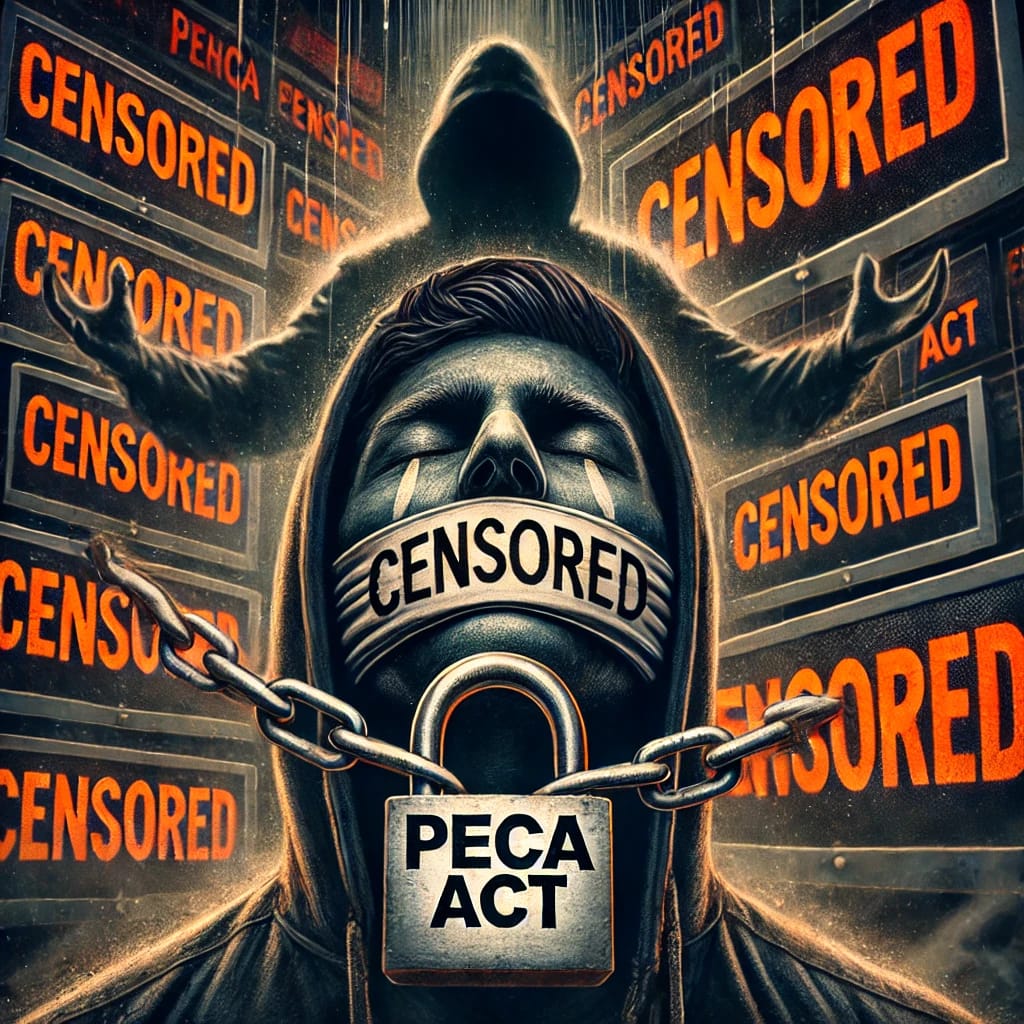The Prevention of Electronic Crimes Act (PECA), originally introduced in 2016, has once again become a hot topic in Pakistan’s political landscape. With recent amendments seemingly favoring the ruling elite, critics argue that PECA is being used to silence dissent, shield corrupt politicians, and suppress journalistic freedoms. Among the biggest beneficiaries of this controversial law is Maryam Nawaz, who, like other political figures, can now escape public scrutiny under the guise of combating “fake news.
PECA: A Tool for Censorship, Not Justice
Initially introduced to tackle cybercrimes, PECA has transformed into a draconian law that primarily targets journalists, opposition voices, and activists. The government’s increased reliance on this law to curb criticism on social media platforms raises serious concerns about its misuse. Instead of combating cybercrimes like hacking and online harassment, PECA is now being wielded as a weapon to protect political figures from accountability.
Silencing Whistleblowers and Journalists
One of the most alarming aspects of PECA is its impact on investigative journalism and whistleblowers. Journalists exposing corruption, abuse of power, and nepotism now face legal threats under vague and broad definitions of “false information.” This has led to self-censorship, where media houses and independent reporters hesitate to report on political wrongdoings out of fear of retaliation.
Protecting the Corrupt Mafia
The recent amendments to PECA have made defamation a non-bailable offense, effectively criminalizing free speech. This is particularly beneficial for politicians like Maryam Nawaz, who have faced relentless criticism for their alleged corruption and misuse of public funds. Instead of addressing legitimate concerns, the government is using PECA to label dissenters as cybercriminals, thereby shielding itself from accountability.
Social Media: The Last Bastion of Free Speech Under Threat
With mainstream media already under heavy government influence, social media remains one of the few platforms where ordinary citizens can express their concerns. However, with PECA in place, even this space is rapidly shrinking. Citizens who question government policies, expose corruption, or criticize political figures now risk facing legal action, hefty fines, or even imprisonment.
The Need for Reform
If Pakistan is to uphold democratic values, PECA must be reformed to:
Ensure Transparency: Laws against cybercrime should not be weaponized to protect political elites.
Safeguard Journalism: Media and journalists must be given protection to report freely without the fear of persecution.
Defend Free Speech: Public figures should be open to criticism, as accountability is a cornerstone of democracy.
Prevent Political Misuse: Amendments that enable the suppression of dissent must be reversed.
Conclusion
Instead of using PECA to silence critics, the government should focus on addressing the root causes of public dissatisfaction—corruption, poor governance, and lack of accountability. Shielding political elites from scrutiny only deepens public distrust and weakens democratic institutions. If left unchecked, PECA will become a tool of oppression, allowing corrupt mafias to operate with impunity while silencing those who dare to speak the truth.






